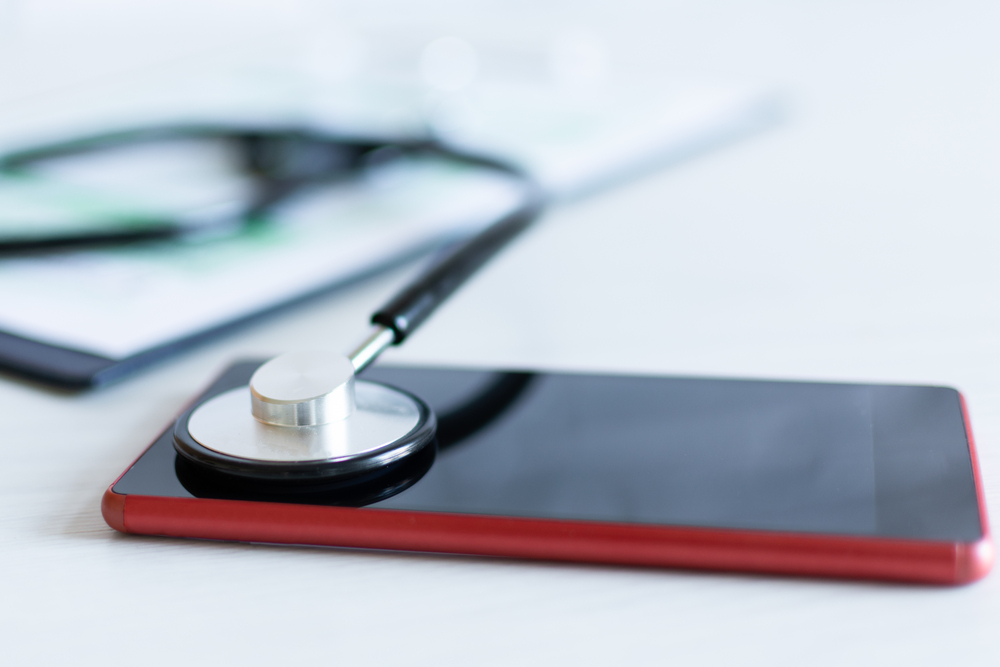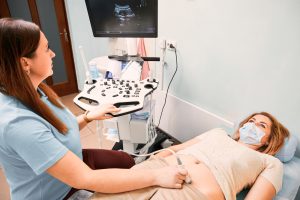 Written by Vivian Kane.
Written by Vivian Kane.
The face of senior healthcare is experiencing one remarkable transformation based on technological advances and deeper understandings brought into personalized care and evolving policy frameworks.
These changes not only reshape how care is delivered but also the way it is taught. From integrating telemedicine into curricula to an increased focus on the mental and financial aspects of healthcare, the newest trends in senior healthcare education weave together an entirely new standard that is anything but unexciting.
The following are some of the most exciting and influential trends that change the face of senior healthcare education.
Technology Integration
From telemedicine to electronic health records, digital tools are being used increasingly instrumentally in the delivery of efficient and effective care to seniors. It’s a question of using technology to deliver care and training healthcare professionals in competent technology use. Technology literacy has become one of the leading emphases of such training programs.
This gives the process of better-equipping health providers by adopting new devices and systems to use competently, hence taking better care of patients.
Through technology, older adults can manage their chronic states more skillfully, communicate with their medical professionals more conveniently, and provide better health outcomes.
Allowing it into the training means more preparedness for the health professions to meet and manage an aging yet technology-savvy population. It will provide a generation of health professionals who know how to apply technology to support and continue, besides conventional caregiving, a better quality of life for seniors.
Focus on Personalized Care
Health education in caregiving is increasingly trending toward designing a treatment plan that addresses a senior’s specific health conditions, lifestyle, and personal preferences. It goes against the one-size-fits-all concept of more personalized caregiving plans for patients.
Clinical programs also train professionals in rendering appropriate planning of care for the elders. It includes those with mobility issues or mental disorders, and treatment of debilitating chronic diseases. Personalized care also involves emotional and psychological support.
Given the struggle of seniors to cope with loneliness and cognitive decline, health professionals have to be trained on how to identify their reactions and respond well. New programs are increasingly covering courses on empathy, communication, and patient-centered care. It makes professionals well-primed in handling their elderly patients’ emotional needs, apart from their physical health.
Medicare Outreach
With more and more health professionals becoming Medicare-eligible, education programs are most definitely in need of adjustments in outreach strategies to tap into such a highly qualified population. Health Education contains Medicare marketing solutions that will help professionals understand the benefits of Medicare and how it can be applied positively to their practice.
Outreach to the community through workshops and partnering with senior centers is combined with electronic campaigns through social media and emails. It could help reach Medicare clients on common aspects, such as out-of-pocket expenses and the extent of the coverage, and be tailored to craft messaging even more effectively. For example, allowing an individual to get an answer concerning their interest.
Programs also focus on educating seniors about their options under Medicare so that informed choices can be made about health insurance.
This trend is part of the more considerable socio-cultural shift toward more proactive, better-informed healthcare with the same knowledge that would take providers and patients through the system maze.
Increased Emphasis on Mental Health
Major concerns clinically include depression, anxiety, and a decline in cognitive ability. Professionals in health require training that equips them to handle such conditions. Modern training involves modules in mental health that will enable health professionals to know the early signs of cognitive decline, like dementia, and what interventions are appropriate.
Also, the stigma about problems with mental health is raging downward, and health education is contributing to that process. It trains future professionals to engage in such a concern area with much ease and expertise by normalizing such conversations even within educational platforms.
Telemedicine
Telehealth has changed healthcare, especially for older people with movement problems. Training in telemedicine began to be included in training that would instruct health professionals in the performance of virtual consultations, data interpretation from wearables, and the provision of remote support. This is increasingly important as the demand for telemedicine services among seniors continues to surge.
Beyond just the immediate increase in access to care by seniors, healthcare practitioner training in telemedicine allows professionals to expand their practice without geographical limitation. This emphasis on telemedicine education is a visionary step that prepares the health workforce for the future when virtual care will be no less common than an in-person visit.
Holistic Approaches to Health in Senior Care
Holistic health encompasses physical, emotional, and social components and is fast becoming accepted in education for senior health care. It is now training health professionals to address the whole person rather than disease-specific treatment. Nutrition, mental health, physical activities, and social engagement have become part of coursework in educational programs regarding a senior’s care plan.
This whole circle of care reveals that elderly individuals fight not just aspects of the disease but rather manage to sustain an adequate quality of life. The provision of information to health providers on the need for a more balanced approach to health sees seniors obtain comprehensive care that deals with every aspect of their well-being.
Interdisciplinary Education
With health care becoming even more of a team-oriented process, there is a greater emphasis on interdisciplinary education. Care for older individuals often requires representatives from many walks of life: physicians, nurses, social workers, and therapists.
Programs are now designed to foster good teamwork and communication among the disciplines so that services provided are coordinated, comprehensive, and less fragmented.
This trend is much more significant for senior caring, where complex medical and social support needs widely require several specialists. The programs make the care experience smooth for seniors by teaching them how healthcare providers need to work in an effective team, reducing the chances of miscommunication.
Policy Changes and Their Impact on Education
Healthcare policies change frequently and are very influential in the health professional curriculum and learning process. For instance, Medicare policies affect reimbursement policies for services and the type of care to be provided. These changes mean that all training programs are meant to help healthcare professionals realize the new regulations in service delivery.
Apart from insurance education, the programs also advocate for the art of health for senior patients. That would include navigating through issues regarding insurance or understanding how to access those governmental-funded resources for seniors.
Cultural Competency
With diversity among seniors continuing to increase, health professionals should be ready to accept and understand cultural differences as they relate to healthcare beliefs and practices. Training in cultural sensitivity forms part of the curricula that help health professionals learn to communicate better with their patients.
It is a great trend for building confidence among seniors and health professionals for better care outcomes. Indeed, this is achieved through different programs that educate health professionals about exemplary aspects of cultural competency that care for seniors while maintaining respect for their values and traditions.
Palliative and End-of-Life Care Education
Programs now offer training in the delivery of appropriate, patient-centered, palliative care with consideration of the goals and needs of the seniors and their families. This is a shift towards healthcare providers being better positioned to support seniors in the most challenging times in their lives.
Care during the end of life requires sensitivity, which results from being able to communicate and, at the same time, being deeply knowledgeable about medical and emotional needs. This is ensured through education focusing on these aspects, ensuring seniors receive dignified and respectful care at whatever stage of life.
Geriatric Specialization
The need for geriatric care is growing, so many practitioners are undergoing further training in this field. The programs deal with those special health concerns expected in later years of life that are managed as one sees increases in multiple chronic conditions, mobility problems, and cognitive impairments.
Specialization courses in geriatrics would thus equip health providers with the necessary knowledge and expertise to provide specialized care to seniors. This trend is bound to emerge due to increasing senior populations, hence ensuring a corresponding sufficiency of qualified professionals to meet the complex needs of this demography.
Caregiver Support Training
Caregivers play a very significant role in the lives of many seniors, yet they are highly under-supported and under-resourced. Healthcare education programs consequently develop curricula that direct attention to how to support the caregivers themselves. These may include caregiver stress management training, training of the caregiver in medical care, and connecting them with resources.
Such programs improve seniors’ care experience by educating healthcare providers on the importance of support for caregivers. When caregivers themselves feel well-supported, seniors benefit from improved care and a more stable home environment.
Financial Literacy
Most seniors find it complex to handle the financial aspects of Medicare, out-of-pocket expenses, and long-term care planning. With those factors in mind, financial literacy is now part of the education that better equips healthcare providers to guide Seniors through these complex issues.
This trend ensures even health professionals are concerned with medical care while helping seniors make informed decisions in terms of money matters. Healthcare could also make the elderly aware of Medicare and long-term care insurance, among other issues, so they are better prepared for the financial turmoil of aging.
Endnote
Senior healthcare education is changing day in and day out. These trends reflect a growing dependence on technology and policies that work in an effort to develop an efficient healthcare system. Through such moves, seniors will continue to get the best possible care from competent and informed providers.
Author Bio
Vivian Kane is a health writer with a passion for improving care for the elderly. With over a decade of experience in healthcare policy and senior care, she focuses on educating the public about innovative trends and best practices in eldercare. Vivian has contributed to various healthcare journals and blogs. Her work aims to bridge the gap between healthcare professionals and caregivers, ensuring that the latest trends in eldercare education are accessible to everyone. When she’s not writing, Vivian volunteers at local senior care centers and advocates for better care standards for aging populations.
Please also review AIHCP’s Nurse Patient Educator Certification programs and see if it meets your academic and professional goals. These programs are online and independent study and open to qualified professionals seeking a four year certification

 Written by Veronica Turner
Written by Veronica Turner